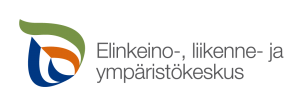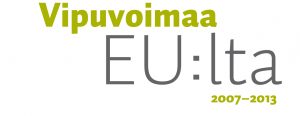Tyyne project
September 1st 2012 – May 31st 2013
Description
In the modern, constantly changing work environments, continuous learning is more important than before. The ways of learning are changing, because a great deal of on-the-job learning takes place outside the traditional forms of education. Learning in working life is also changing: instead of competences of individuals developing through training courses, learning is increasingly becoming a continuous, community-based activity. Resources that have become important include, for example, various communities of practice in which employees of different organisations share professional practices. Peer groups are also an essential resource in modern work communities, producing and refining wikis and other community-originated products. Users are simultaneously information producers and information users, which has an effect on their roles regarding their learning. The ways differ in which different age groups learn. For example, the new communications modes of young digital natives and their community-based activities challenge the present modes of on-the-job learning.
This report describes the work and outcomes of the TYYNE project (Työelämä oppimisympäristönä – Working life as a learning environment) from the viewpoint of working life as a future learning environment. The work done was founded on several complementary forms of activity. These included literature reviews, expert panels, two-tier Delphi inquiries and active work in various social media channels. In addition to the actual outcomes of the study, this report contains several essays, written from different points of view and describing the challenges of future learning in working life. This TYYNE project report also describes the way in which the study was conducted; it was very participatory and interactive, and made use of the means and channels enabled by the internet and social media.
Työelämä oppimisympäristönä – Working life as a learning environment – was a study funded by the Centre for Economic Development, Transport and the Environment of Lapland and overseen by the Ministry of Education and Culture, forming a part of the ESF Operational Programme in mainland Finland, national section, operational line 3, The Development of Competence, Innovation and Service Systems Promoting the Functions of Labour Market, a part of which consists of the development project The Active Citizen of the Open Learning Environment. The project was implemented under the coordination of the Association of Finnish eLearning Centre 1 October 2012 – 30 April 2013; the participants included, in addition to the Association of Finnish eLearning Centre, the Aalto University (School of Arts, Design and Architecture, Learning Environments Research Group), HAMK University of Applied Sciences and Otava Folk High School.
Summary
The TYYNE project (Työelämä oppimisympäristönä – Working life as a learning environment) focused on working life as a future learning environment. The work done was founded on several complementary forms of activity. These included literature reviews, expert panels, two-tier Delphi inquiries and active work in various social media channels. The study dealt with the multidimensional relationship between working life and learning, which was approached through exposing the backgrounds for modern phenomena with the help of field-specific literature and through the work of expert panels. The project also estimated future trends and enriched views concerning them using participatory working methods such as Delphi inquiries and expert panels.
The key premise for this study was that multi-faceted, extensive and continuous learning will be the most essential aspect of all work in the future. Information processing and new learning are almost without exception involved in all current and future professions – including those that are usually not considered knowledge-intensive. Work in the future will clearly be community-based in nature, and expert tasks conducted alone are already vanishing. High standard competences of individuals will be important in the future as well, but individual expertise will need to be related to the collective competences of the work community. Developments at work will require more extensive and faster learning. In this way, the boundary between working and learning will become artificial: in the future, working will be continuous learning. A key observation made in this study was that the great change in learning can be summarised as learning transforming itself from individual activity to community-based activity. The key word for the community-basis of learning is network. Learning networks are diverse, multi-faceted and multidimensional – and community-based learning will be increasingly founded on open implementations that do not recognise organisational boundaries. Community-based forms of activity are supported by e.g. trends that increase the significance of communities of practice for learning, promote openness and transparency, and solidify community- based models in the arrangement of work. These increasingly blended types of work arrangements – such as flexi time and remote work – also mean that community-based learning makes better use than before of various information and communications technology solutions and services. One of the important features in community-based learning is the increase in open sharing. Learning in future work environments will take place at all times and everywhere. Various learning features are increasingly embedded in our tools, and support for learning will become a standard feature of their diagnostics. Continuously developing, diverse mobile solutions will ensure that opportunities for learning – whether we are acquiring or disseminating information – are available at all times.
The significance of informal learning will grow and gain strength in working life. In our quickly changing environment, the traditional course-oriented modes of competence development have their restrictions, because most of our current learning takes place when we work and communicate with the other members of our work communities. The traditional educational methods still have an important but a more specifically defined role.
In working life, the habits and methods involved in learning both develop and become more versatile. These new modes and forms of learning will supplant traditional classroom-oriented forms of education. Game-like learning contents are rapidly becoming more common in working-life learning, as the concept of games and game-like features is gaining depth and dimensions. The increasing, high-quality supply of open learning contents will transfer the focus of education from supplying courses to supplying mentoring and other types of support for learning; supporting and managing learning will form the most important future challenge for leadership in organisations. Sharing the results of our own work and those of our work community, enriching them and improving them continuously, forms an essential part of the learning process in working life.
We can assume that in future society, a major part of the population is not employed in the traditional sense. However, it is essential that people outside the traditional labour market as well as micro-entrepreneurs and other persons in small organisations have the opportunity of actively networking as learners.
On the basis of the study, 15 recommendations were given to promote learning in future working environments in a versatile manner.
- Instead of focusing on the development of individual competences in work environments, learning activities focus on the development of the competences of communities. This requires that new competences are acquired in work communities to lead them and to support their daily learning through mentoring and other methods, and also to develop learning networks and new leadership modes. Educational institutions and training organisations in Finland should effectively develop and support this change through their actions and educational supply.
- Learning in the current working life takes place through the learners functioning in different types of networks and sharing openly among themselves. Therefore, it is important to support actively the establishment, early phases and operation of different types of learning networks (e.g. regional and sector-specific networks). Effective learning networks are characterised by a diversity of structure: they involve enterprises, educational institutions and public parties.
- Various ICT-based solutions become more important in working-life learning than ever before. The key trends that affect learning include e.g. the maturing of various augmented reality applications and services, the embedding of different types of learning resources into tools and structures, and the fact that mobile technologies are diversifying and becoming more efficient. In order to make use of such new opportunities for learning in working life, we must have a strong national ICT infrastructure, a strong services architecture, and determined cooperation among the various parties.
- Versatile, multidimensional learning holds a key position as individuals will be required to work in many different professions and jobs during their careers; continuous learning is also important if we truly want to extend the durations of people’s careers. The opportunities of individuals for multi-faceted learning and, consequently, for professional mobility should be supported through many different, complementary means.
- We can assume that in future society, a major part of the population is not employed in the traditional sense. However, it is essential that people working in different ways and in different contexts have the opportunity of actively networking as learners. Similarly, we must actively take care that people such as sole traders and people employed by microenterprises and small public organisations have the opportunity of being included in continuous learning activities. Special activities can be targeted to such groups to encourage them to participate in learning networks.
- The importance of informal learning in working life is constantly increasing. We should make informal learning more visible, strengthening it through e.g. enhancing competency-based vocational qualification systems. The compilation and publication of individual learning portfolios should be actively supported in many fields. Such measures will help increase opportunities for professional mobility.
- Information and communication technologies will increasingly enable the automatic saving and analysis of many aspects of our work. It is also an increasing trend that people measure their work and wellbeing on their own. These trends create opportunities for new types of learning in which individuals and work communities reflect on their actions in real time as well as over the long term. The continuous measuring and storing of activities and communication, together with highly-developed information processing methods, may challenge the traditional and competency- based methods of acquiring qualifications. This new mode of operation will require diverse investigations and studies relating to e.g. acceptable practices, privacy of information, various agreements in work communities and the applications and services in use in them.
- The networked activities of communities of practice are an important form of learning in current working life. We should employ many different means to support the operation of communities of practice and the fluent dissemination of learning. If the establishment of communities of practice is publicly funded, we must make sure that the continuation of the operation of such communities becomes a key criterion for such funding.
- Modes of operation founded on open sharing will probably gain ground in the future learning in working life. The preconditions for open, mutual sharing and flexible co-creation must be promoted and their obstacles must be decreased through e.g. appropriately comprehensive guidance and counselling concerning immaterial rights as well as through technically supported open environments for sharing learning resources in practice.
- Finnish companies and research institutions have world-class experience of games design and the implementation of games. Game-like features will probably gain ground in the future learning in working life, and therefore, the operation of Finnish players in this field should be directed towards making use of game-like features in the context of work as well.
- New ICT applications and services that are currently reaching maturity – such as augmented reality and man-machine cooperation – have significant potential in working-life learning. The development and introduction of these new applications and services should be accelerated through targeted R&D funding as well as through project funding for their roll-out and use.
- Until now, the current working life, considered as a learning environment, has been the subject of only a few studies, whether Finnish or international. Universities and other institutions of higher learning and research should put forth effort on the creation of many-faceted research-based information concerning working life and learning, as well as developing and disseminating such information.
- Learning itself and the possibilities we have for learning in working life are critically influenced by the competences we obtain at school. When the national core curricula for pre-primary, basic and general upper secondary education are renewed and the new curricula enter into force, they will impact working life and working-life trends to a significant extent. Therefore, the learning of individuals and communities should be viewed in a comprehensive manner, making sure that continuous learning is supported at all levels in our changing operating environments.
- A new type of leadership is necessary for maintaining the forces of continuous renewal and change in working life – we need both self-leadership and competence management. Work organisations and working habits are undergoing constant change. We work regardless of time and place. Leadership in new types of environments must be supported and developed. In work communities, leaders must create the frameworks and opportunities for shared learning, for experimentation and for enhancing practices together. Leaders need new types of models and tools to help them lead.
- Learning in working life, currently under continuous development in Finland, also requires positive role models and the recognition of learning. The first important step would be the development of a framework and a set of criteria for the use of organisations so they may review their own learning in relation to others, similar to the way in which quality criteria are applied in quality competitions. This first step could form the basis for the introduction of a new continuous learning award for organisations, in addition to the present awards, so that we might recognise and share good practices, thereby strengthening organisations’ desire to continuously improve their learning skills and their desire to learn.






